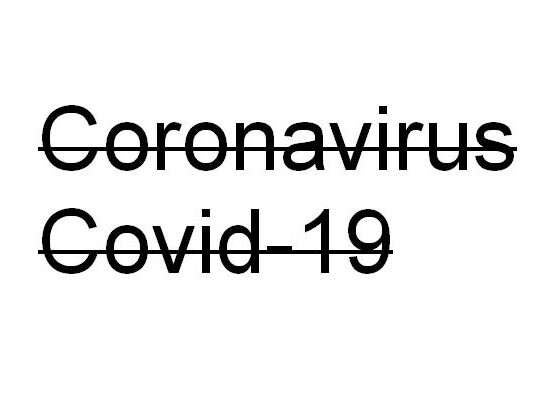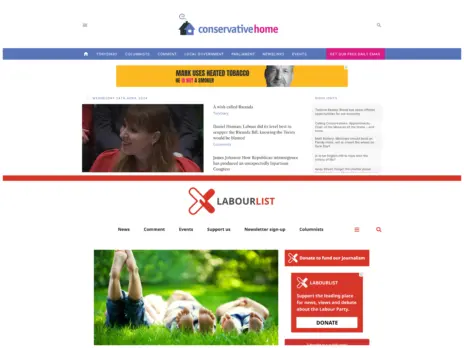
Reach’s advertising arm has come up with “irrefutable” evidence that violent or otherwise negative news stories have no detrimental impact on brands advertising alongside them.
The In Safe Hands report, published by Reach Solutions, found that as long as ads are placed in trusted environments, for example well-known news websites rather than social media platforms, the content around them does not matter.
It follows marketers being urged to “back don’t block British journalism” after restrictions on advertising next to Covid-19 content last year took a toll on publishers’ digital revenues.
[Sign up for Press Gazette fortnightly Marketing Matters email newsletter here]
They were experiencing record demand for online news, mostly about the coronavirus pandemic, at the same time but were unable to bring in vital revenue because of brands banning keywords out of an abundance of caution.
Some examples from Reach of stories wrongly blocked by advertisers, and the reasons why, despite the publisher deeming them “safe and inoffensive”:
- Lewis Hamilton attends Black Lives Matter protest at Hyde Park –Mirror, 10 June 2020 (violent content)
- Second ‘Clap for Our Carers’ moment planned to support all coronavirus key workers –Express, 1 April (negative content)
- Duchess of Sussex makes surprise visit to a school in one of her last solo engagements as a working royal – Manchester Evening News, 7 March (adult content)
Andrew Tenzer, director of market insights and brand strategy at Reach, said: “The evidence is irrefutable. Quality environments matter just as much, if not more so, when it comes to brand safety.
“Content intensity does not have a negative impact on brand perception on trusted news sites.”
The report drew on a forced exposure study using 4,500 people in January last year to test the impact of different types of content on the brands advertising alongside them, combined with a nationally representative survey of 2,020 people in May to find out about consumer concerns around brand safety.
In the study, readers of the Mirror, Express and Star were shown content of different levels of intensity – low intensity topics like Strictly Come Dancing, medium meant things like racism in football, and high used the ISIS ‘Beatles’ trial – and shown pre-roll video adverts on the page.
By asking the participants about their emotional response to the stories and the adverts, the survey found that negative feelings elicited by negative news articles were not transferred to the advertiser brands.
The report came to the conclusion therefore that advertising is “equally effective when shown with newsbrand content that would usually be blocked”.
However the response was not the same when a mocked-up news website called Circulate was used, as being on an unfamiliar and therefore distrusted environment led to “significantly” more negative responses that did transfer to the advertisers.
The report said the study proved “the public understand that there’s a difference between curated news on established, quality newsbrand sites compared with content that ‘pops up’ on social media or user generated content video sites.
“They know that what they see on publisher sites has been created by professional journalists, while social media and UGC video sites are seen to be unregulated and unpredictable.
“When it comes to online safety concerns, it’s not established news sites that consumers are worried about. They know that not all digital platforms are created equal, and advertisers should too.”
It urged advertisers to be more concerned about where their ads are placed and what this environment says about their brand rather than placing disproportionate focus on what content their adverts sit alongside.
And it stressed there was no need for a “one size fits all” approach treating publishers the same as Youtube and other social media platforms, warning of “wasted inventory for publishers and wasted opportunities for advertisers”.
The survey found people were at least twice as likely to associate brands advertising on newsbrand sites with values such as quality, trustworthiness and reliability compared to those advertising on social media or UGC video sites.
Reach has already developed its own brand safety tool with technology company IBM which uses an automated and more accurate way to decide whether content is acceptable using wider context and sentiment rather than key word identification alone.
But the company wanted to test its hypothesis that even content legitimately identified as “unsafe” by tools like this posed no risk to advertiser brands within an established newsbrand website.
Reach chief revenue officer Piers North said the findings showed advertisers benefit from being in a newsbrand’s “curated ecosystem where they can maximise the opportunity to confidently advertise alongside all types of content due to the strength of the environment, rather than the wild west of user generated content video sites and social media”.
Email pged@pressgazette.co.uk to point out mistakes, provide story tips or send in a letter for publication on our "Letters Page" blog






